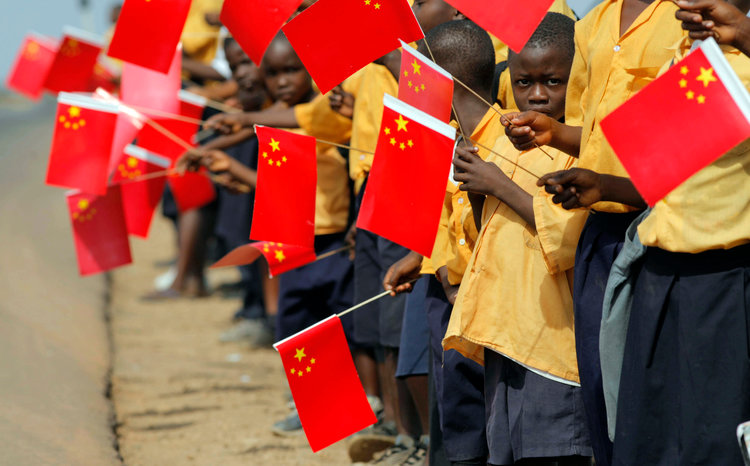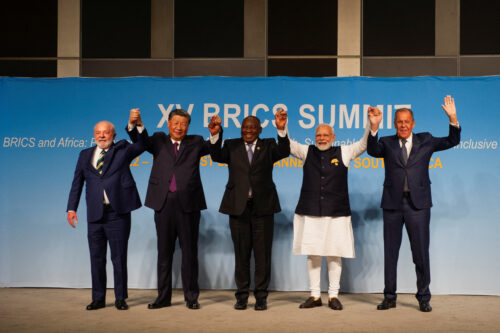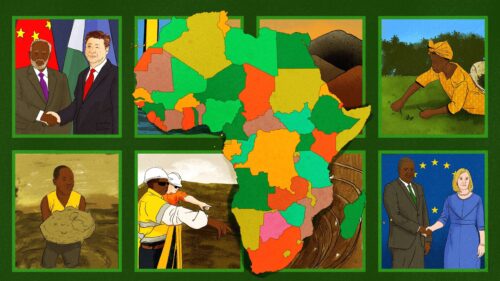Trump administration unveils ‘new Africa strategy’ with eyes on China; Africans are unimpressed

In a speech on December 13, U.S. National Security Adviser John Bolton announced a “new Africa Strategy,” called “Prosper Africa,” that the Trump administration had approved.
This prompted Bloomberg, in its reporting, to quip, “What was the old one?”
It’s a good question. But the new strategy is also not clear. Bolton says the “strategy is the result of an intensive interagency process, and reflects the core tenets of President Trump’s foreign policy doctrine.” It is intended to “support U.S. investment across the continent, grow Africa’s middle class, and improve the overall business climate in the region.”
But China is mentioned 14 times in Bolton’s speech, and Russia six times. It seems the policy is less concerned with growing Africa’s middle class than with the following:
- Dissuading African governments from dealing with or borrowing from China and Russia; Bolton cites runaway debt to China and a military threat. He says that the new policy “will encourage African leaders to choose high-quality, transparent, inclusive, and sustainable foreign investment projects, including those from the United States.”
- Reducing American aid to Africa: “The United States will no longer provide indiscriminate assistance across the entire continent, without focus or prioritization.”
- Talking up the threat of radical Islam: Countering “the proliferation of Radical Islamic Terrorism, and other forms of violent conflict, across Africa…is the second priority under our new Africa strategy.”
Africans are not impressed. Judging from African Twitter and several commentaries in African newspapers, many people found Bolton’s speech extremely patronizing. There also seems to be a strong feeling that “Prosper Africa” will fail. Here are two responses which I think are representative:
“Whether the policy on South Sudan succeeds, there is a possibility of Juba [capital of South Sudan] shrugging its shoulders as long as China and Russia are bringing the money without conditions,” says Kenya’s Daily Nation, in an article titled “Trump’s Africa policy could open door for China to expand influence.”
“If China did not exist, John Bolton and Trump’s Africa policy would not exist,” tweeted Nigerian writer Onye Nkuzi:
So what John Bolton outlined is not an “Africa policy”, but the African component of America’s China policy.
The past is their inspiration. They plan to refight a Cold War against Russia and China.
Nkuzi also explains a practical reason why Nigerians will not avoid doing business with China:
US is a “free and open society” — we all accept, but it is easier for a Nigerian passport holder to get a visa to China than it is to get a U.S. visa.
Now if you are into business, this matters — go to Guangzhou, do your business, make money, then watch CNN and Hollywood movies.
And finally, Nkuzi suggests Africa has little choice:
It doesn’t matter whether we like China or not; much of the economic growth witnessed in Africa over the past 20 years has been on the back of Chinese demand for Africa commodities. Until we find a substitute for this demand, we have to do business with them.






